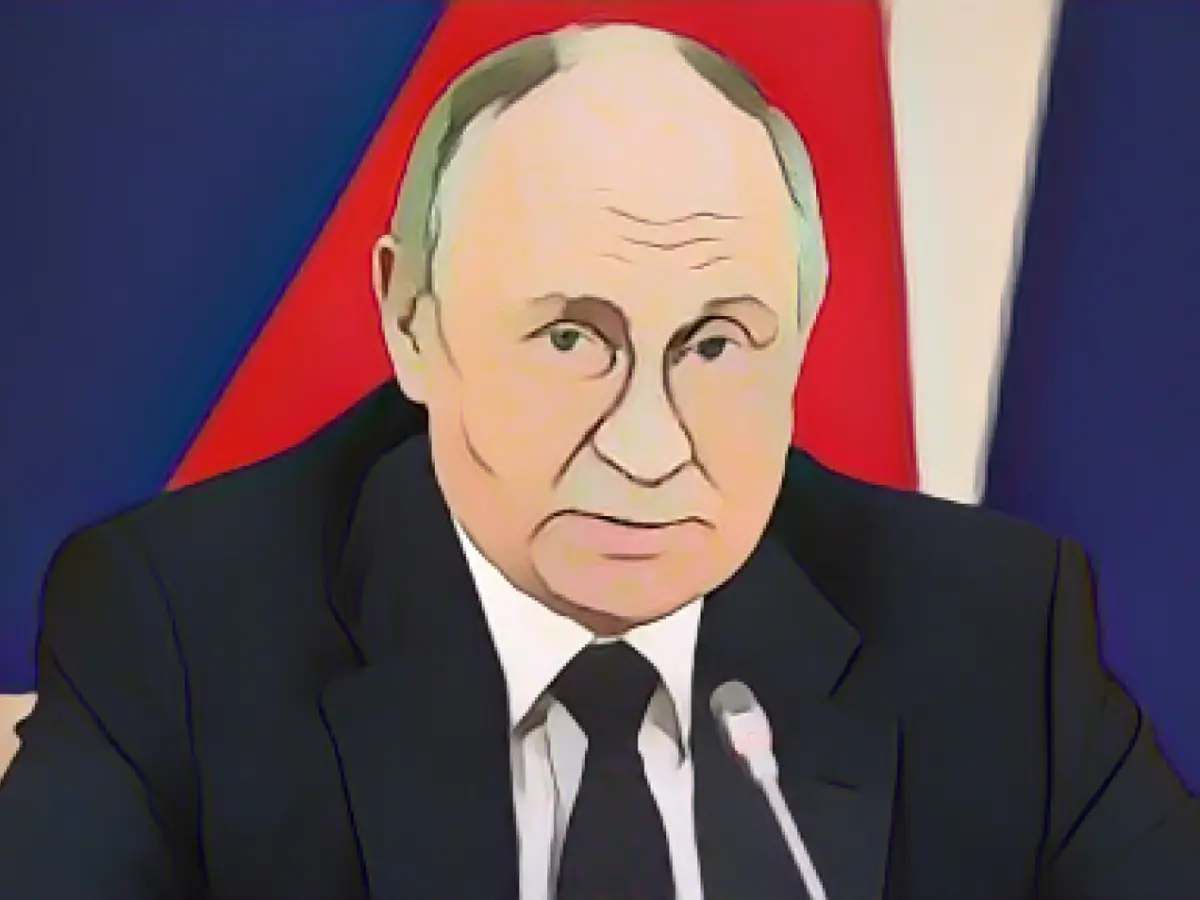"Putin's Year-End Check-in": The President's Q&A Session in Amidst War and Controversy
In a highly anticipated event, Russian President Vladimir Putin will hold his first major press conference in over a year on December 15. The Q&A session, blending journalistic queries with public concerns, will air on state television as part of the "Results of the Year" program. This year's event is particularly noteworthy due to Putin's ongoing war in Ukraine and his impending election for a fifth term.
Kremlin spokesman Dmitry Peskov announced this public event, which will begin around noon Moscow time (10 a.m. CET). Remarkably, over 1.5 million questions have been submitted for Putin's consideration.
Public curiosity surrounding Putin's question-answer session extends beyond the war. This is the first time Putin has addressed the nation in this television format since the conflict's onset. Furthermore, his constitutional amendments paved the way for his potential electoral win on March 17.
Putin's Controversial Press Conference and Public Consultation
Before, press conferences and public consultations were separate events. Challenging domestic issues, including poverty, poor healthcare, and obsolete infrastructure, were consistently raised during these sessions. Putin, who has led Russia for over two decades, often plays the role of a problem-solver and caretaker during these public consultations. However, critics claim that his use of repetitive questions maintains a stalemate against improving the conditions.
Recent research conducted by the Levada Center, an independent Russian opinion research institute, revealed that the majority of Russians are interested in understanding when the war in Ukraine will conclude. Additionally, the survey disclosed that peace negotiations have gained popularity among the Russian population.
Topics on Putin's Mind
Two pressing concerns dominated the Levada Center's surveys: the citizens' pension concerns and the senior citizens' desire for a better quality of life. According to this research, many elderly citizens are seeking an end to their struggle for normal living conditions and fair wages.
Putin's press conference is expected to last approximately three hours, while Kremlin spokesman Peskov underscored the unavailability of any time constraints. The significance of the conference can be gauged from the extensive security precautions implemented in the city center near the Kremlin.
Invitations Only for Preferred Journalists
Last year, Putin decided to cancel the annual press conference and the "Direct Line" show due to the ongoing war in Ukraine. These events, which usually span several hours, are iconic elements of the Russian political calendar. Putin's concern for international scrutiny during his military campaigns is evident in his need to avoid questions from international journalists.
In recent times, Putin scarcely attended press conferences held outside the Kremlin. Instead, he would meet with journalists loyal to the regime during his travels, bypassing independent media access. Last year, Putin skipped both the press conference and the "Direct Line" session for the first time in ten years.
Similar to previous years, Putin did not follow the traditional accreditation procedure for his press conference this year. Invitations were exclusively extended to hand-picked journalists.
- Sources: - -
Insights
Russia's current political and social landscape continues to evolve amidst growing international tensions and domestic concerns. Amidst this unrest, Putin's annual question-answer session serves as a vital platform for addressing the public's anxieties. During the session, Putin will likely discuss a few key topics:
- Economic and Social Issues: Putin may discuss measures to improve the country's medical insurance and charitable organization structures, as well as modifications to the education system.
- Military and Law Enforcement Support: Measures linked to providing support for military personnel, law enforcement officers, and retirees may be addressed, including discussions on expanding their use of official residential premises.
- Regional Development and Support: Putin may unveil initiatives to promote regional development and support through construction projects, tourism infrastructure, and housing relocation programs.
- International Relations and Diplomacy: Putin's diplomatic endeavors, particularly those related to Ukraine and Syria, as well as his talks with foreign leaders, could be a significant topic in the discussion.
The event's significance extends beyond domestic affairs, as it offers an opportunity for Putin to demonstrate his administration's commitment to addressing the public's concerns and maintaining a positive international reputation.




